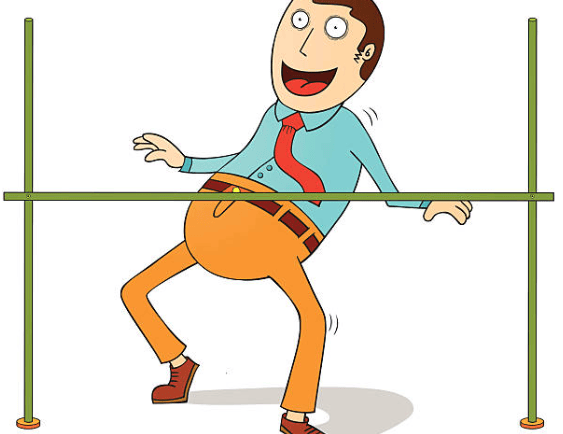Living in limbo land
Being neither one thing nor the other
BLOGS
Mike Gibson
4/13/20205 min read


So! Here I am four weeks into quarantine with the strangest sense of being a complete fraud. You see, in my quarantined life, I'm acting as if I had the most virulent communicable disease known to man - and yet there's not a thing wrong with me.
Well - ok - if you ignore the CLL and the Type 2 diabetes, the ever-present pain, the fatigue and the headaches- apart from that, there's nothing wrong with me! What I mean is, that in terms of this current Coronavirus outbreak, I have absolutely no symptoms. I have been "strongly advised" by my medical team, to go into quarantine which is the responsible thing to do. I'm doing everything they and the government have asked me to do given that I am in the highest risk category.
But I cannot escape this feeling that somehow I'm over-reacting and taking unnecessary precautions. That's nonsense - of course it is - but I just can't shake the feeling that I'm some kind of fraud. Imposter syndrome is an all-to-familiar emotion for human beings. Everyone experiences it at some stage of their lives except those who would most benefit from doing so.
In many ways, it reminds me of being in CLL Stage 1 under the "Wait and Watch" protocol. You are neither one thing, nor the other. You are in a medical and financial limbo where you seem to watching a CLL-sponsored race in which you want neither side to win. Which will come first - bankruptcy or chemotherapy?
In CLL Stage 1, you are of minimal interest to your haematology clinical team. They'll see you every 3-6 months, but unless you show any deterioration, you are really just a patient put to one side in the filing cabinet marked "Pending" for review later. You aren't on any treatment protocols. You aren't having any therapy. You're just in this strange limbo world. You've got a terminal illness but you're not yet showing the blood work results that would require treatment. To be clear - I am not criticising that approach. It is appropriate and functionally the right thing to do. Scarce NHS resources need to be spent where they will be most effective, and that means addressing effort, time and money on those patients who actually require treatment. But those in Stage 1 are in a strange limbo where the situation is terrifying.
Why is it terrifying? Because for many people - their professional life and financial security are now in turmoil and for most of us, those are the two things that define us. They are central pillars of our lives - and something is chipping away at the foundations.
The fact is that depending on which study you chose to believe, anything from 16% to 68% of CLL Stage 1 patients report symptoms of pain and fatigue in varying degrees of intensity. You can feel great one day, and absolutely bloody awful the next. It becomes difficult to perform one's work or commit to long-term projects. No work (for self-employed people) means no income. So you think that maybe you'll claim on your ill-health insurance, or maybe see if you can get some help from the welfare state that you've paid hundreds of thousands of pounds into over your 35-year career. Nope.
Why? Because there are haematology consultants who refuse to acknowledge that Stage 1 CLL patients experience any significant symptoms which would prevent them from working - and you need their written testimony to support any claim on insurance or welfare. Now - I know what you're thinking. They're the experts, right? They know this stuff better than anyone else, so of course they must be right. Well, the problem with that train of thought is that there is massive array of haematology consultants who absolutely acknowledge that patients at any stage of CLL can - and do - experience acute symptoms. Some have even contributed to studies on the matter. I've documented my own experience of the pain and fatigue associated with my CLL in my early blogs (have a read - they're a great cure for insomnia). But I offer you this as evidence - it is one of scores of relevant documents I could have shared. Just read the first paragraph.
So - you're going to need some medical testimony to back up your insurance or welfare claim but because the focus has been purely on the results of your blood tests, if you are unlucky and have one of the 'naysayers', your consultant is basically going to say that there is no medical reason why you can't continue to work. Which is utter crap. You ever tried to work when every fibre of your body is screaming in pain at you? You ever tried to concentrate when your body feels like it has run a marathon? Sure, the next day, you might be feeling absolutely fine but your clients need continuity. They need to know you're going to turn up day after day. And that's a promise that you simply cannot meet anymore. So, you're in limbo. Can't work, can't claim anything, can't even use that expensive professional insurance you pay for.
So the work dries up, the income goes with it and slowly your hard-earned savings that you were keeping for your retirement start to drain away too. But you're still in this limbo-world. You are neither one thing nor the other. You're not well enough to continue working and you're not sick enough to need treatment. This starts to mess with your psyche - you've barely had a day off work in your 35-year career and your work defines you. It helps you understand your place in the world and gives you a sense of value. It makes you feel like you are making a contribution to the world, no matter how small that might be. And suddenly, it's gone. You want it back more than you can express. You miss it.
So you're neither one thing nor the other. You can't get on with your life because, not to put too fine a point on it, that life has gone and will never return. It starts off that the pain is bad one or two days a week. Several years down the line, it is now 5-6 days a week and utterly debilitating. But your blood work is still below the threshold for chemotherapy or other treatments. You can't work but you can't get someone to sign off so you can supplement your income. You can't work so you have lost the thing that defines you, the thing that gives you understanding of your place in the world. You feel useless and hate yourself for not being able to contribute to society. You feel like a 'taker' from society rather than a contributor to it. It's such an unpleasant place to be that even your self-confidence has pissed off and moved to the Gobi Desert.
You're neither one thing nor the other. You're in financial and professional limbo. But - and here's the contradiction - you passionately want to stay there. Forever.
Because there is only one exit door from limbo, and it leads directly to the chemotherapy ward.
Some times in life, we need to be grateful for where we are, no matter how bloody awful it seems.
Because there is always somewhere worse to go.
